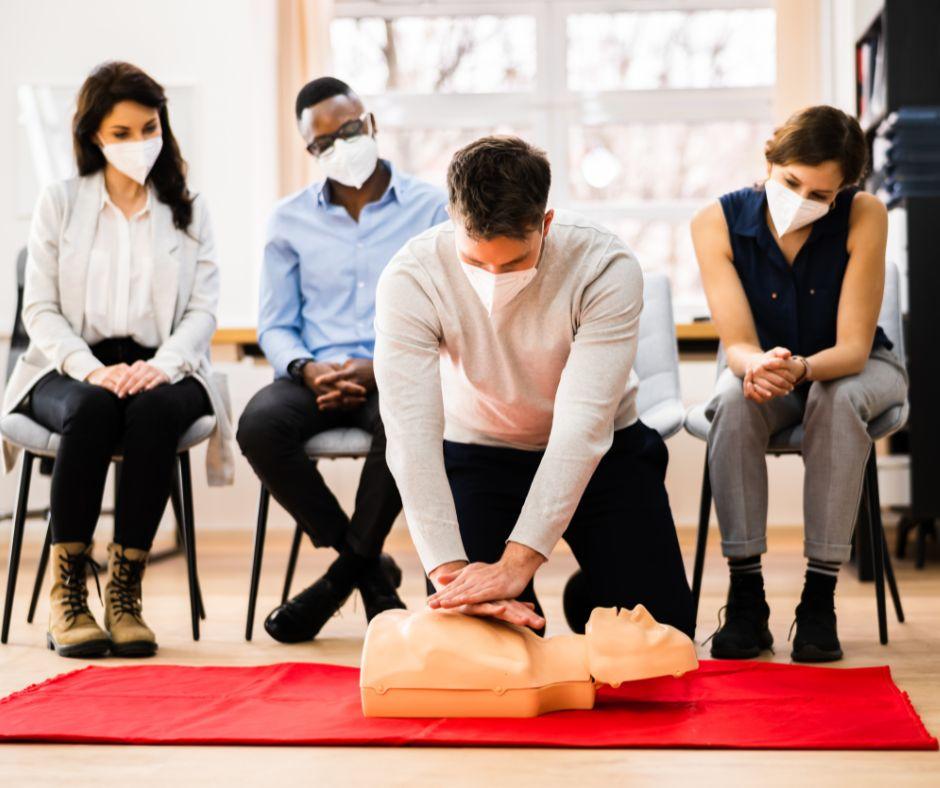Top Advanced First Aid Training Programs

In today's world, where emergencies can strike unexpectedly, being prepared with advanced first aid skills can make a crucial difference in saving lives. Advanced first aid goes beyond basic techniques, equipping individuals with comprehensive knowledge and hands-on training to handle complex medical situations effectively. This article explores some of the top advanced first aid training programs available, highlighting their key features, benefits, and what sets them apart.
Understanding Advanced First Aid
Advanced first aid training is designed for individuals who may encounter high-risk environments or situations where immediate medical attention is vital. This training goes beyond standard first aid by delving into more intricate medical procedures, emergency response strategies, and critical decision-making skills. Participants learn to assess and manage injuries that require advanced interventions, such as administering medications, providing advanced airway management, and handling trauma injuries until professional medical help arrives.
Key Components of Advanced First Aid Training
-
Medical Assessment and Triage: Participants learn systematic approaches to assessing injuries and prioritizing treatment based on severity, ensuring efficient use of resources in emergency situations.
-
Advanced Airway Management: Techniques for maintaining and securing airways in cases of respiratory distress or obstruction are taught, including the use of advanced airway devices.
-
Cardiopulmonary Resuscitation (CPR): Advanced CPR techniques cover scenarios like cardiac arrest and drowning, emphasizing effective chest compressions, airway management, and use of automated external defibrillators (AEDs).
-
Wound Care and Trauma Management: Training includes wound assessment, infection control, and techniques for controlling bleeding, managing fractures, and stabilizing spinal injuries.
-
Medical Emergencies: Recognition and initial management of medical emergencies such as heart attacks, strokes, and diabetic crises are integral parts of the curriculum.
-
Environmental Emergencies: Instruction on recognizing and treating environmental emergencies like hypothermia, heatstroke, and altitude sickness prepares participants for outdoor and extreme environment scenarios.
Choosing the Right Advanced First Aid Program
When selecting an advanced first aid training program, several factors should be considered:
-
Accreditation and Certification: Ensure the program is recognized by relevant authorities or professional organizations to validate your skills.
-
Curriculum and Scope: Review the topics covered to ensure they align with your specific needs and potential risks in your environment or profession.
-
Instructors and Facilities: Quality of instructors, hands-on practice opportunities, and access to modern training facilities enhance learning outcomes.
-
Practical Experience: Programs that emphasize practical simulations and real-life scenarios better prepare participants for actual emergencies.
Top Advanced First Aid Training Programs
1. FAST Rescue Advanced First Aid Course
FAST Rescue offers a comprehensive Advanced First Aid Course designed for individuals and organizations seeking in-depth medical training. This program covers advanced CPR techniques, trauma management, and emergency response strategies tailored for workplace and high-risk environments. Participants gain practical experience through realistic simulations and learn from experienced instructors certified by regulatory bodies.
2. Red Cross Advanced First Aid and CPR Course
The Red Cross Advanced First Aid and CPR Course is widely recognized for its thorough curriculum and practical approach to emergency medical training. It includes advanced techniques in CPR, AED use, and medical emergency management, ensuring participants are prepared to respond effectively to a wide range of emergencies.
3. St. John Ambulance Advanced First Aid Course
St. John Ambulance offers an Advanced First Aid Course focusing on advanced wound care, triage, and managing medical emergencies. This course is suitable for healthcare professionals, outdoor enthusiasts, and individuals working in remote or high-risk environments.
4. American Heart Association Advanced Cardiovascular Life Support (ACLS)
While primarily focused on healthcare professionals, ACLS provides advanced training in cardiac arrest management, including pharmacology, airway management, and effective team communication during emergencies.
5. Wilderness First Aid Training
For those venturing into remote or wilderness settings, specialized wilderness first aid courses are available. These programs cover unique challenges such as improvised care, prolonged patient management, and evacuation strategies in austere environments.
Benefits of Advanced First Aid Training
-
Enhanced Preparedness: Advanced first aid training equips individuals with the skills and confidence to respond effectively to medical emergencies, potentially saving lives.
-
Professional Development: Certifications in advanced first aid can enhance career opportunities in healthcare, emergency response, and safety-related professions.
-
Community Impact: Trained individuals can contribute positively to their communities by providing immediate assistance in emergencies before professional help arrives.
Conclusion
Investing in advanced first aid training is invaluable for individuals and organizations committed to safety and preparedness. Whether for workplace safety compliance, personal enrichment, or professional development, choosing the right program ensures you acquire the skills needed to handle emergencies confidently. Explore the diverse range of advanced first aid training programs available and embark on a journey towards becoming a proficient first responder in any critical situation.
- Art
- Causes
- Crafts
- Dance
- Drinks
- Film
- Fitness
- Food
- Juegos
- Gardening
- Health
- Home
- Literature
- Music
- Networking
- Other
- Party
- Religion
- Shopping
- Sports
- Theater
- Wellness


